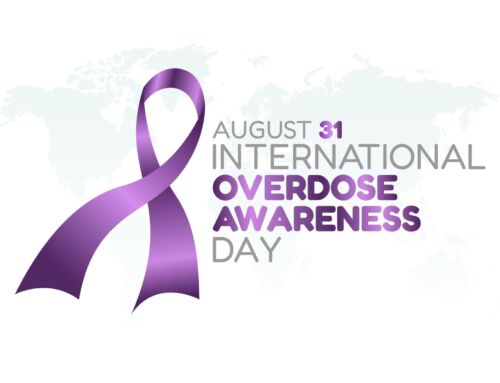Fantasy football has become incredibly popular in recent years, thanks to social media, the internet and sports betting platforms. On its face, fantasy football is a fun, friendly, competitive hobby, but it has evolved into a cultural phenomenon, where participants invest not just their time and energy but also their emotions and money. However, the line between healthy competition and problematic behavior can sometimes blur, leading to unexpected consequences. Among these is the concerning link between fantasy football and substance use disorder.
The Allure of Fantasy Football
Fantasy football originated in the 1960s but has seen exponential growth, especially with the rise of the internet and mobile technology. What was once a niche activity has transformed into a mainstream obsession, with millions of participants worldwide. The game allows fans to create their own teams, draft players, and compete in leagues against friends, family, and strangers.
Fantasy football taps into a range of psychological and social factors that make it highly engaging. The thrill of competition, the strategy involved in selecting and managing players, and the camaraderie of participating in leagues with others all contribute to its popularity. For many, fantasy football provides a sense of control and mastery, as well as an escape from the stresses of everyday life.
However, this allure can also lead to unhealthy behaviors. The emotional investment in the game, coupled with the highs and lows that come with wins and losses, can be a gateway into further gambling behaviors and can create a fertile ground for stress and anxiety, which in turn can lead to substance use as a coping mechanism.
Fantasy Football and Risky Behaviors
For many participants, fantasy football starts as a hobby but can quickly become an obsession. The emotional stakes involved in managing a fantasy team—especially when there are financial incentives—can make the game more than just a pastime. The pressure to win, the disappointment of losing, and the constant need to stay on top of player statistics can lead to significant stress and anxiety.
The stress associated with fantasy football can be intense. Participants may find themselves constantly checking scores, analyzing player performance, and worrying about injuries or trades. This level of engagement can interfere with work, family responsibilities, and social relationships, leading to increased anxiety. For some, the stress of managing a fantasy football team can become overwhelming, pushing them to seek relief through substances such as alcohol or drugs.
The Link Between Fantasy Football and Substance Use
One of the key ways that fantasy football can lead to substance use is through the stress it generates. When the pressures of the game become too much, some individuals may turn to substances as a way to cope. Alcohol, for instance, may be used to unwind after a particularly stressful game day, while other substances might be used to enhance focus or stay awake during late-night research sessions.
This pattern of behavior can quickly become problematic, leading to a cycle where substance use becomes a regular response to the stresses of fantasy football. Over time, this can contribute to the development of substance use disorders.
Another significant factor linking fantasy football to substance use is the social environment in which the game is often played. Fantasy football leagues are frequently organized among friends, co-workers, or social groups, and games are often accompanied by gatherings at sports bars or parties. These environments, where alcohol and other substances are readily available, can create a culture where substance use is normalized.
Peer pressure can also play a role. In competitive environments, there may be encouragement to drink more, stay up later, or use substances to maintain focus or energy. This can lead to risky behavior and increase the likelihood of developing substance use issues.
Recognizing and Addressing the Problem
It’s important to recognize the signs that fantasy football may be contributing to substance use issues. Some key warning signs include:
- Increased substance use on game days or during fantasy football-related activities.
- Neglecting responsibilities at work, home, or in relationships due to fantasy football.
- Using substances to cope with the stress or disappointment of a loss.
- Experiencing financial difficulties related to both fantasy football and substance use.
If you or someone you know is exhibiting these behaviors, it may be time to seek help.
Seeking Help for Substance Use
Acknowledging the problem is the first step toward recovery. If fantasy football is leading to substance use issues, it’s crucial to seek professional help. Treatment options are available that can address both substance use disorders and the underlying stress or anxiety that may be contributing to the behavior.
Preventing substance use issues related to fantasy football involves maintaining a healthy balance between the game and other aspects of life. Here are some tips:
- Set limits on the time and money spent on fantasy football.
- Engage in other hobbies and activities to reduce the focus on the game.
- Avoid environments where substance use is encouraged or normalized.
- Seek support from friends or professionals if you feel overwhelmed by the game.
Treating the Causes of Substance Use Disorder is Key
If you or a loved one is struggling with substance use related to fantasy football, professional treatment is available. Substance use disorder treatment programs can help individuals develop healthier coping mechanisms, address underlying mental health issues, and rebuild their lives without the crutch of substances.
At Recovery at the Crossroads, we understand the importance of treating the whole person. Our programs are designed to address not just the symptoms of substance use but also the underlying causes. We offer culturally sensitive treatment options, including those tailored to the recovery needs of the Jewish community, to ensure that our clients receive care that respects their values and traditions.
Our holistic approach includes a variety of therapeutic methods, such as group therapy, individual counseling, and Eye Movement Desensitization and Reprocessing (EMDR), to help clients recover in mind, body, and spirit.
Recovery is possible, and you don’t have to do it alone. At Recovery at the Crossroads, we provide a supportive, understanding environment where you can begin your journey to a healthier, substance-free life.
If you or a loved one is struggling with addiction, don’t wait to get help. Contact Recovery at the Crossroads online or via phone at 888-342-3881 today to learn more about our programs and how we can support you on your journey to recovery.



